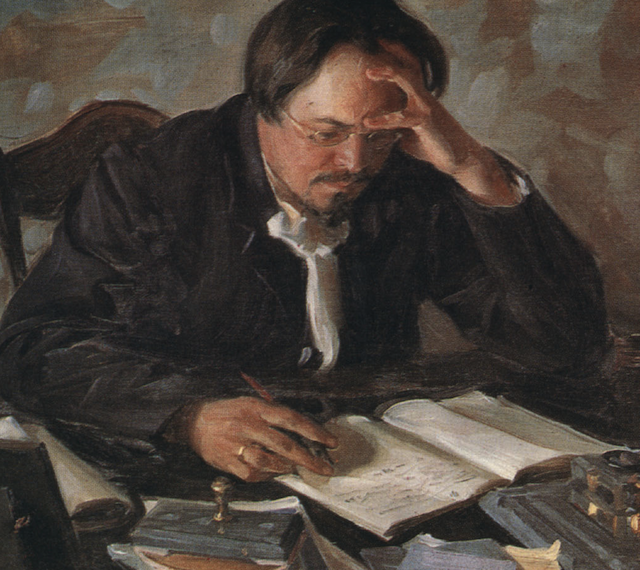
The writer stared at the column of white paper. The paper remained stubbornly blank. It should have become something new, by now: a list, detailing his achievements since last year, somewhat akin to a cosmic progress report. And yet, the list already existed and it was complete. He saw that now. It was what mathematicians sometimes refer to as the null set, because it contains precisely zero members. He put his pencil down.
And then he scratched the back of his head, and realized that his accomplishments had been overstated. Like Descartes’ cogito ergo sum, he had feigned scepticism only to smuggle an assumption under the nose of the reader. He re-read what he had written before, seeing the truth of it. Translated as ‘I think, therefore I am’, Descartes had bungled himself into his philosophy. He had not troubled to establish what was named by the ‘I’. Perhaps it named many things. Perhaps it was constantly changing, so that there was no continuity to it. Or perhaps it winked in and out of existence, whenever a thought started, and ended. An apparently solid argument had been built on the least secure of foundations: the assumption of an identity. If anything had been established, it should be summarized as: “thinking takes place.†And the writer had made the same mistake, giving himself a title he had not earned. All that was known was that writing had taken place, for good or ill, and possibly of no consequence either way.
He returned to the beginning, and read what he had written. By reading it, he confirmed its existence, to the best of his ability. The reading established that there had been writing. Something – unnamed, but definitely something – had existed, even if it was the words and nothing else. They had been born into the universe, and it no longer seemed to matter if there was reason or significance beyond that truth.
p therefore p is simultaneously the most robust, and the lightest argument of all. Its short radius of circularity condenses to a single indivisible point, a moment of logical certainty, divorced from all other matters of fact, or belief. He now understood his writing to be a single point of certainty, shining like a star in the void. It was so far away, that the light which came from it travelled in parallel lines, with no criss-cross, or overlap, or interference. The light was pure, and simple, which is what he aspired to be. And it was light enough for him.
And so he became a character in his own story, which pleased him greatly. And it was definitely his story, which pleased him even more.

Be the first to comment